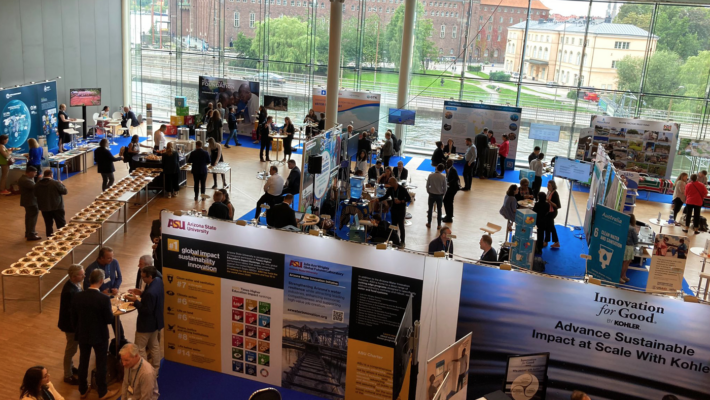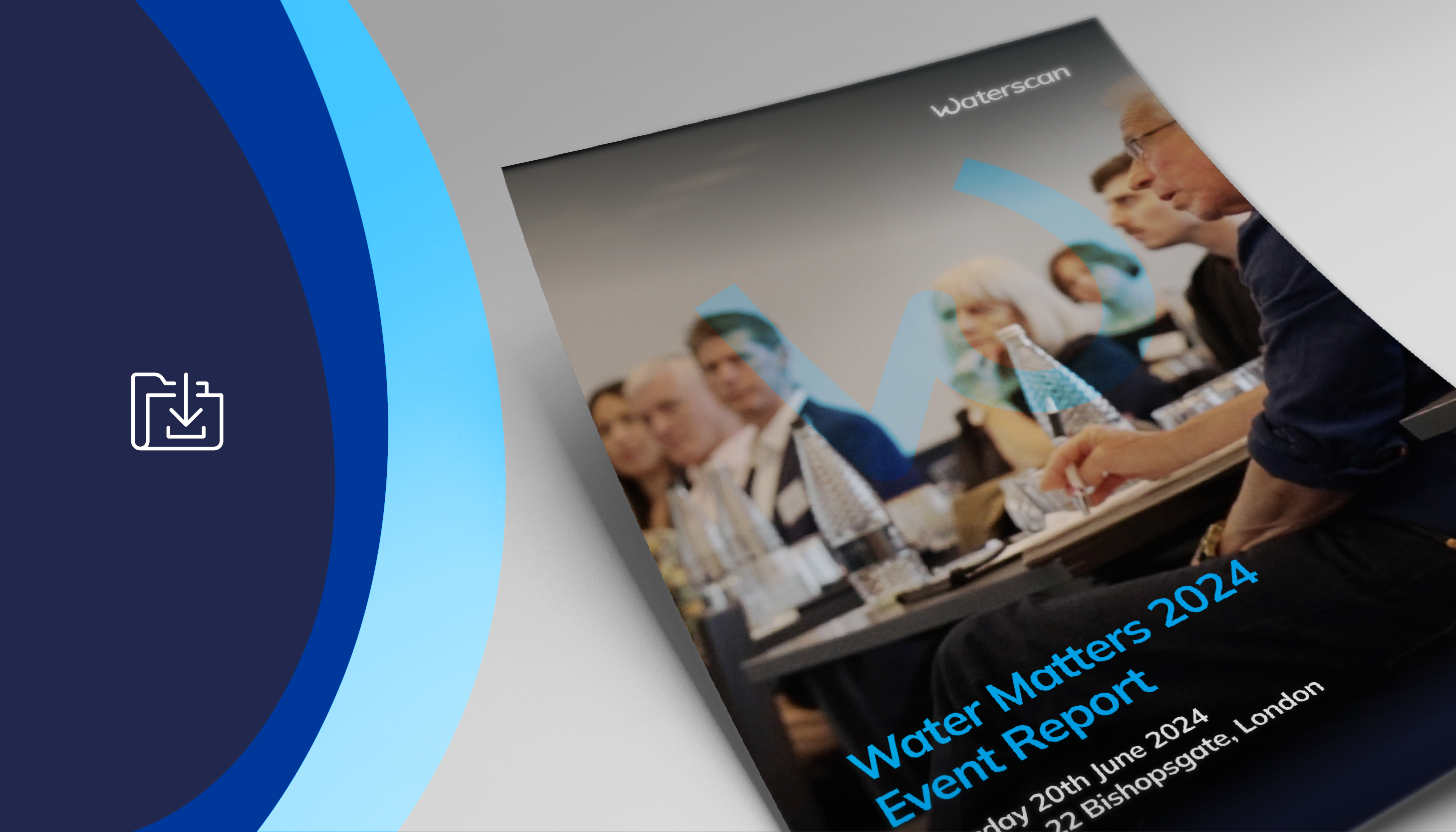Highlights from the third day of World Water Week.
The complex global interplay of a huge number of stakeholders was a key theme running throughout day three of the conference. With presentations from NGOs, UN, the World Bank and some of the world’s largest private sector organisations like General Mills, Coca Cola and Sainsbury’s, the extent of the challenge in getting everyone to pull in the same direction became overwhelmingly clear – and overwhelmingly necessary.
Listening to stakeholders is the key to changing behaviours at scale. With hundreds of commitments on water laid down at company, national and international levels, meaningful impacts will only be achieved if everyone is on the same page and is willing to collaborate within their spheres of influence. Working with sincerity, integrity and openness will provide certainty for less influential parties involved, such as landowners, farmers, and indigenous people, while preventing greenwash.
Top sessions
UN 2023 Water Conference Talk Show: Keeping the Momentum Going
Speakers: Various
Attended by: Esmond Bowerman – Sustainability Manager
The UN Conference for Water in March 2023 has helped to mobilise countries and organisations into action on water – many now seem to have realised the urgency and are taking steps to accelerate change. There is, finally, momentum on water. However, it must be remembered that it is only through action that commitments are translated from good intentions to meaningful impacts.
Key takeaways
- Although different regions experience different challenges, water connects everyone geographically – underdeveloped and developed nations need to work together.
- The 800 commitments made at the UN Water Conference have raised the profile of water issues across the world. This will result in globally co-ordinated state action via policy and regulation, which will in turn filter into the private sector.
- Water is beginning to take centre stage and is likely to feature prominently at COP28 due to the intersect with climate and biodiversity.
“Water is broader than the source – without resolving water issues you can’t solve other SDGs”
Companies & Stakeholder Engagement
Speakers: Jan Burger – Climate & Wayer Sustainability Director Europe – Coca Cola, Margot Conover – Associate Manager, Global Impact Team, General Mills, Scott McCready – CSO, Alliance for Water Stewardship
Attended by: Toby Jackson – Account Analyst, Waterscan
Stakeholder engagement is not just a check box exercise for companies wanting to gain certification. It has tangible economic, social, and environmental benefits. Although challenging due to the diversity of stakeholder interests, collective action is vital if long term sustainability goals are to be achieved. Building trust and demonstrating the benefits for all – a “win-win-win” – are the cornerstones of engagement.
Key takeaways
- Empowering local communities to take control of sustainable water management is critical to make sure measures are successful in the long term.
- Don’t be afraid to engage in discussions with stakeholders that challenge or dislike your organisation as often, they will give the most honest and useful feedback. Being open to learn from them will demonstrate sincerity in the desire to work together to achieve mutual goals, forge new relationships and improve perceptions of your company.
“Water Stewardship is a stakeholder inclusive process. Who should we talk to next?”
From linear to circular and resilient: transforming the water sector
Speakers: Led by The World Bank
Attended by: Esmond Bowerman – Sustainability Manager, Waterscan
The concept of the circular economy revolves around several key objectives: regenerating natural systems, eliminating waste and pollution through design, and providing resilient and inclusive services. To achieve circularity, the goal is to disconnect economic activity from the consumption of finite resources. Water, often following a linear path in our systems, must draw inspiration from the circular nature of the water cycle in nature. Case studies from Senegal and Brazil demonstrated how a circular economy can be applied to water-related scenarios.
Key takeaways
- The principles of the circular economy provide a chance to acknowledge and harness the complete value of water – viewing it as a service, a process input, an energy source, and a transporter of nutrients and materials.
- This approach holds the potential to enhance the sustainability, inclusivity, efficiency, and resilience of the water and sanitation sectors. Moreover, it simultaneously contributes to the enhanced financial sustainability of utilities involved.
- A Water in Circular Economy and Resilience (WICER) Framework has been created by The World Bank to help assess projects quickly and robustly.
Day three in numbers
- All of the UK’s water is needed to supply consumers – 70% of the water used is external to the UK.
- There are just 7.5 years left to achieve UN Sustainable Development Goals – we are half-way through the timeframe set.
- 800 commitments on water were made at the UN Conference for Water in March 2023.
- To achieve SDG 6 by 2030, we need to increase our efforts 6-fold.
- 9 out of 10 environmental disasters are water related disasters.
- 8,000 paper hummingbirds carrying messages of change hung in New York City to highlight World Water Day 2023.
Final thoughts
The biggest barriers to progress on water resilience appear to be funding, lack of understanding, and lack of alignment. Governments have been slow to come up with regulatory frameworks, meaning that some commercial enterprises have taken the lead via the self-governing Environmental Markets Board. Communications are often too scientific and fail to resonate with audiences who experience information overload and misinformation. There is a widespread misunderstanding of the need to align action on water because it connects everyone.




